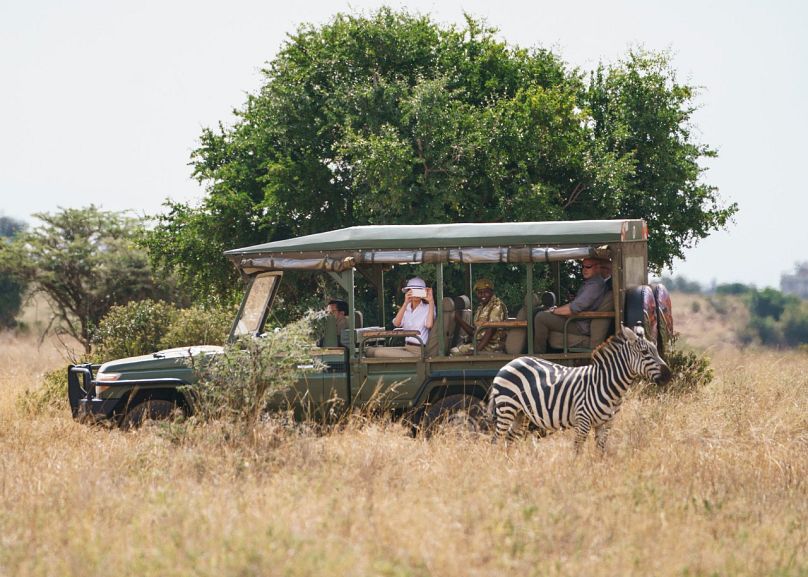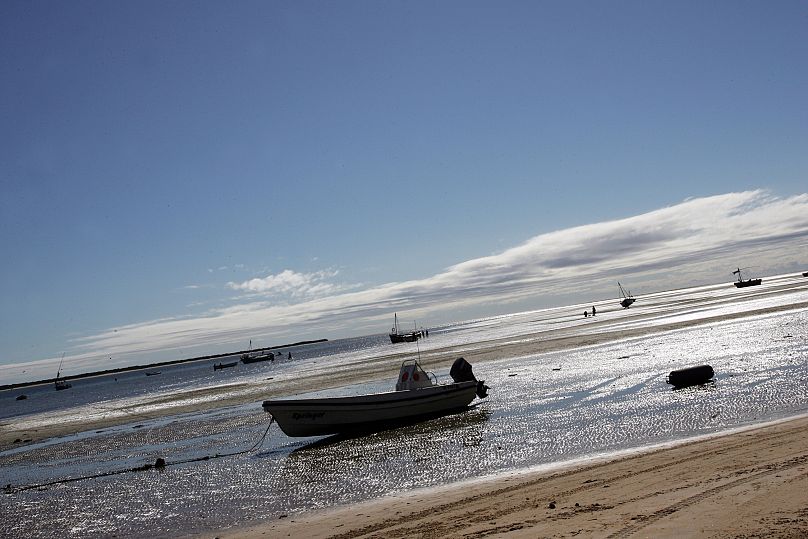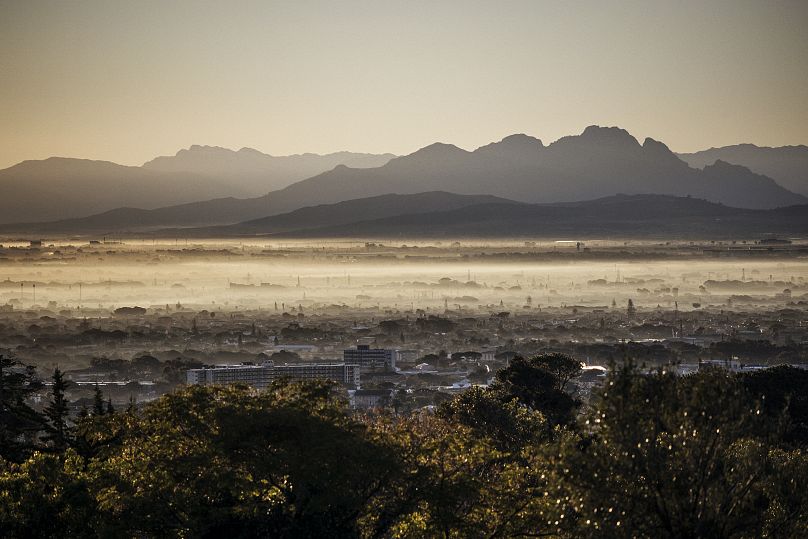The COVID-19 pandemic is having a devastating impact on Africa's growing travel and tourism sectors. How can the continent get back on track to growth?
Boasting its safaris in South Africa, bright tiles in Morocco and idyllic beaches in Mozambique, the African continent offers a variety of cultural delights for foreign visitors.
But like much of the world, the COVID-19 pandemic is having a devastating impact on its thriving tourism and travel sectors, a special Euronews debate heard on Tuesday (you can watch it in full in the video player, above).
African tourism showed a 6% growth between January and May 2019, said Elcia Grandcourt, regional director for Africa at the World Tourism Organization (UNWTO).
But, she told the Euronews discussion, this year tourism for international arrivals contracted to minus 47%.
"It places millions of jobs and livelihoods at risk. It is important to restart the industry when safe," Grandcourt said.
Travel and tourism contribute over €150 billion to Africa's economy combined, representing 7.1% of GDP and supporting millions of jobs, according to the World Travel & Tourism Council (WTTC).
The situation is critical for businesses as travel and tourism comprise 80% of small and medium enterprises (SMEs).
The coronavirus 'disaster'
But coronavirus has put the brakes on that growth, with temporary lockdowns forcing airports, hotels and restaurants to close.
The African Union said in July African countries have lost almost $55 billion (€46 billion) in travel and tourism revenues in the last three months due to the outbreak.
"It’s been a disaster in 2020 we were growing, now we are decreasing," said Sisa Ntshona, chief executive officer of South African Tourism.
"I think the change that has been on the whole continent of Africa is that we are all diversifying our economies... away from extractive mineral resources to the more sustainable services side," he told the panel.
He said the tension now lies in governments making the difficult decision to shut down sectors as costs are still incurred by keeping businesses afloat.
"You’ve got to look after the supply side because if you don’t do that you may wake up in six months' time when you're ready to operate and look backward and don't have a sector to speak of because all of it would have deteriorated," he said.
'Recovery starts with confidence'
South Africa is the fifth worst-affected country globally in terms of coronavirus cases, with over 45,000 people infected.
But it is one of Africa's tourism hot spots.
"Recovery really starts with confidence," said Tim Cordon, area senior vice president for the Radisson Hotel Group's Middle East and Africa division.
"Once people have a bit of confidence... I think the demand will start to be stimulated," he told the Euronews debate.
He is quite optimistic for South Africa as he said demand for the October-January period, peak tourism season during the country's summer, "looks quite strong".
"If borders open and if South Africa is able to get pandemic under control, it could have an ok summer season," he said, adding most of the demand came from the UK.
But it is still uncertain what will happen by then.
Off the beaten track
"It would be very irresponsible for us as a country that is short-sighted to say let's open now and actually create a bigger problem down the line," said Ntshona.
While Grandcourt said "long haul travel won't open immediately" but that domestic travel had "potential" and had been neglected in the past.
"We've got such a lot of good things going on in Africa for us," she said.
However, the continent will also be a hub for people seeking holidays off the beaten track, Cordon predicted in three to four years' time.
"One trend I think we may see emerge or accelerate from an existing trend is a demand for eco-tourism or tourism in more remote destinations.
"Africa is really well placed to put itself in the forefront of that," he said.














